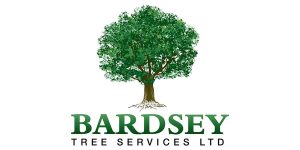For the November edition of THAT LEEDS MAG I have spoken to Marty Jopson we chat about the Otley Science Festival. Marty is the resident science reporter on BBC’s, The One Show and has been working in television for twenty years, on the BBC, ITV, Channel 4, Sky, The Discovery Channel and National Geographic, he lives in lovely Otley.
Here is an abridged version of our conversation from 27th October 2021.
Deby: How did you come to found the Otley Science Festival?
Marty: The Otley Science Festival came about in 2008 from chatting to some local schools, as a science communicator they approached me with some funding for gifted and talented children. We decided that rather than just involving gifted and talented kids we would put on some shows for all the schools and we set out at The Otley Courthouse, because that was the obvious place to run it, in the centre of Otley.
I remember a conversation with the then Chair of The Otley Courthouse, we were sitting in the café, I said “Oh, you should have a Science Festival here”. And she said “Go on then”, sort of like a double dare. So, we did, and we started it that November.
November seemed to be a convenient time for everybody. I mean, it’s not the best time in the world to have a festival, insomuch as you can’t really use the outside, at least not reliably, but it actually works out quite well in terms of the calendar for Otley.
I just sort of roped in a few people I knew locally, who did stuff. And I did a show. And they did a show. The Otley Courthouse got together a few like-minded folk, a few science nerds that were on the committee. And that’s how it started.
If you're interested in science going to a Science Festival is a great way to access a wide variety of topics
Deby: I haven’t been to The Otley Courthouse, is there an outdoor space to put up a marquee or anything like that?
Marty: The Otley Courthouse is slap bang in the middle of Otley, it’s the Old Otley Courthouse. It’s literally where they used to try people. We use the indoor and outdoor courtyard space, it’s a brilliant venue for the sort of shows and events that we’re putting on. The first festival was a Thursday, Friday, Saturday but it pretty quickly spread to the whole week. Saturday has always been the Science Fair, which is our big free event.
free science fair Saturday 20th November 2021
Deby: Tell me more about the free science fair.
Marty: It’s an awesome day for the whole family, we get in lots of local groups to, you know, set out stalls as you would, but they’re selling science in a way, like science information, except they’re not selling anything because it’s free.
The Institute of Physics always show up with all sorts of students, with loads of silly demos that you can do – really simple, kind of really basic things that just sort of demonstrate something nicely. The Leeds Geological Society bring lots of cool geology and rocks to look at. The Chevin Forest School will be there. The Otley Maker Space will have some activities that people can join in with too. A wide variety of science stalls, robotics, animal organs and engineering demonstrations, something for everyone.
The requisite for that is that anyone can have a stall, but you’ve got to have some sort of interactive demo for visitors to enjoy.
stunt science for key stage 2 - live on stage and free online
Deby: There’s a few events designed specifically for primary school children, can you tell me a bit more about these.
Marty: A primary purpose of Otley Science Festival is to raise awareness of and interest in science amongst the younger generation, the schools programme runs daytimes on Tuesday, Wednesday, Thursday.
I’m doing a show on Wednesday 17th November called Stunt Science with some silly and dangerous stunts on stage – sponsored by The Grammar School at Leeds. It’s also being streamed live. We discovered, during lockdown funnily enough, that if you put a great live science show online, for free then you get a considerable sized audience. I’ll be in The Otley Courthouse with a live audience and it will be available for schools to show in classes, get your link through The Otley Courthouse.
I can adapt my shows relatively easily because I have made a lot of television, I can deal with the technology as well and understanding how that all works, the microscope cameras, lighting and stuff like that.
Deby: What can people expect from your Mobile Tear Down show?
Marty: This is my latest live show. Tear down is basically when you break apart something to find out how it works. What I wanted to do was to take apart a mobile phone, to answer questions. What’s in here? What’s this made of? The show is about material science, the material science of what’s in a mobile phone.
There’s quite a lot of stuff about how the screen works because the screen is the thing you interact with, let’s face it. But, also the other parts, the speaker, and the vibration motor. It’s a show with some silly demos, lots of audience interaction and ‘ah ha’ moments.
Deby: Otley has a Science Café, can tell me a bit more about this?
Marty: Firstly, we have the festival café, and then we have three more during the year. They are popular events in The Otley Courthouse calendar, the way the café works is we find three speakers, per date, for short 10 to 15 minutes talks and demos on a subject of their choosing, followed by questions (if you don’t want to stick your hand up and ask the question, then you can chat to them afterwards). It’s nice, because you don’t have to sit through an hour of a talk and then discover 10 minutes in that you’re not that interested. It’s eclectic, we mix it up so that we have different people talking, serious stuff, not so serious stuff. For example, In September we had Dr Alessandro Biraglia from Leeds University Business School talking about consumer behaviour and the psychology of buying things, Dr Liz Breen, Director of the Digital Health Enterprise Zone, University of Bradford exploring Covid-19 vaccines – access, equality and success and Dr Mark Stidworthy, Principal Veterinary Pathologist, International Zoo Veterinary Group on Pachyderms, parrots and Polynesian tree snails – a real mix of topics.
The café’s always good fun. I see it as the heart of the Festival because it’s the one thing that just keeps coming along. And we have a lot of people who come to all our cafés, who are the real science nerds, and they’re almost like the core of it.
enthusiastic people who are going to tell you something new and exciting
Deby: Could you share some top tips for budding scientists of any age?
Marty: If you’re interested in science going to a Science Festival is a great way to access a wide variety of topics, and enthusiastic people who are going to tell you something new and exciting. Science is fascinating. I’ll get slightly philosophical here. But science is ultimately, I believe, deeply fascinating. The difficulty is, how do you as somebody who isn’t necessarily a trained scientist, how do you engage in that? How do you get hold of that interesting science? One way is to go out and read science, popular science books, or the latest science papers and stuff. But if that’s not your bag then Science Festivals are great, the events are usually pitched at the general public, not pitched at science experts. There are festivals all over the country. The universities often put on events, Leeds University had its Be Curious Festival earlier in the year. The key to a good Science Festival is that it’s got to be as broad as possible in its subject remit.

Find the full itinerary online at:
otleysciencefestival.co.uk
Follow them on socials to stay in the know.
























































